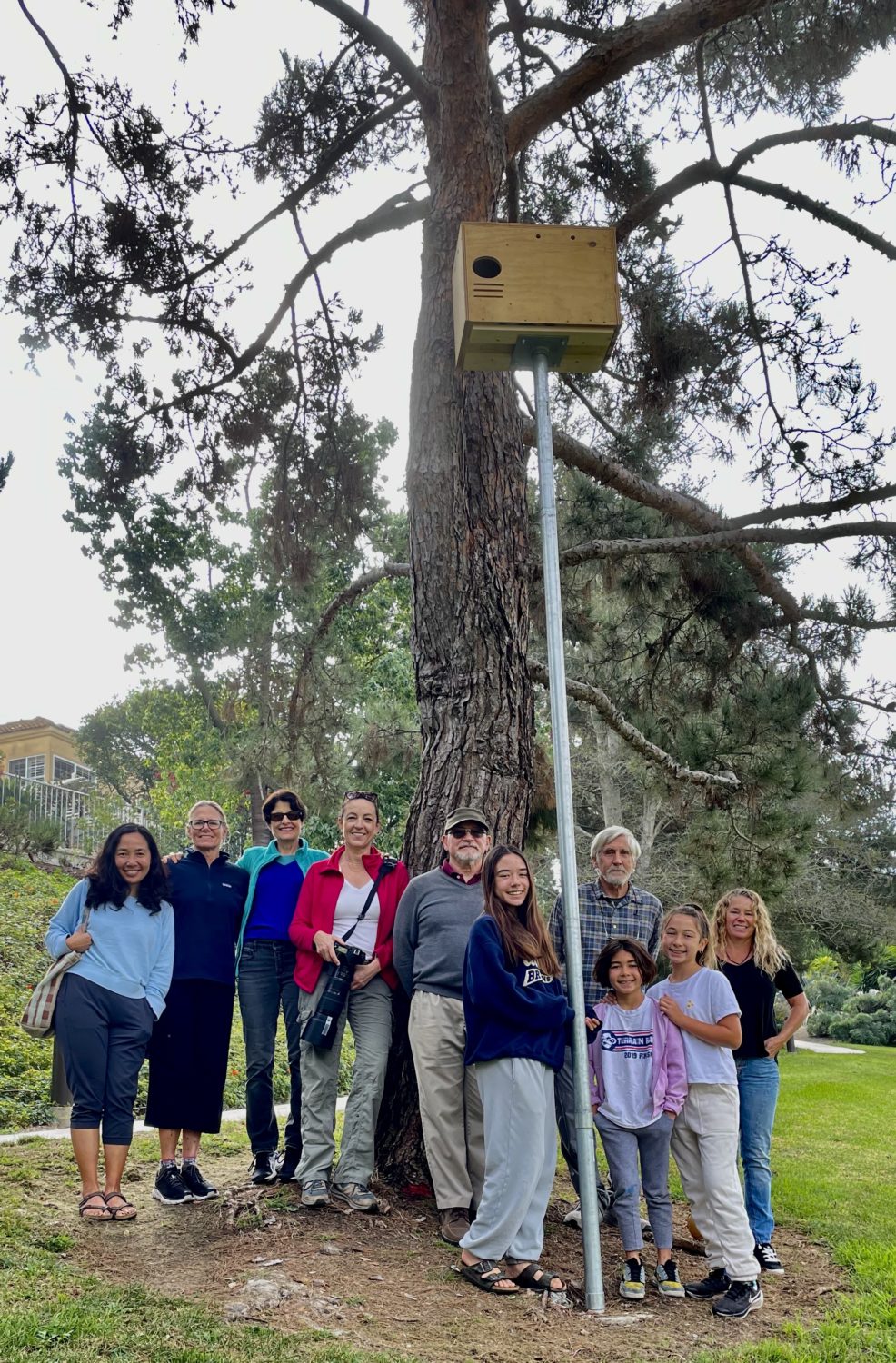The hills have owls – at least that is the hope of a new approach to pest control being tested by the Irvine-based HOOT Group. While rodent populations are undoubtedly a nuisance for property owners and renters everywhere, an environmental group in University Hills is hosting open auditions for owls to become the neighborhood’s newest breed of eco-friendly exterminators.
Now, through the creation and installation of newly built owl roosting boxes, residents in University Hills are eagerly awaiting feathered exterminators, specifically native barn owls and the great horned owl, to occupy the trees. So far, the experiment has completed one nesting season, according to HOOT Group founder Kim Huxman. While the roosting boxes remain empty for the time being, HOOT members are anticipating hungry owls on the way.
“We’ve only had them up for one nesting season, and we’re hoping in the next season owls will find the boxes and we’ll be able to start increasing our population,” Huxman said. “We already have great horned owls in our neighborhood – and barns owls – we know they are out there, whether or not they find the nesting boxes is going to be hit and miss.”
Aptly named the HOOT Group, an acronym for Help Our Owls Thrive, the owl-forward organization was founded by Huxman, a resident of University Hills, in 2018.

(Courtesy HOOT Group)
The HOOT Group has debuted this experimental approach in South Orange County that Huxman hopes will lead to more property management companies employing the practice – while decreasing the use of toxic rodenticides. Additionally, Huxman explained that reducing areas where rodents can hide is also something property management companies can do to reduce the presence of rodents.
“Change is possible if you persevere, if you hear no the first time, that’s OK. People don’t like change, but if you keep approaching in a systematic, educated and calm way – and you’re armed with data – I want people to know that they can make a difference,” Huxman said. “Just keep trying, don’t give up.”
In an effort to educate herself on alternative solutions for pest control, Huxman said her research led her to the discovery of a San Francisco-based group called Raptors Are The Solution (RATS) – where she learned that owls are officially classified as raptors.
Through working with RATS, which happens to be an ironically named acronym for its specific cause, Huxman said she learned that feed box and snap trap style extermination was not the most efficient, or humane, way to reduce rodent populations based on the speed at which the animals reproduced.
In an interview with Irvine Weekly, Huxman explained that her mission began as a humane alternative to implore local property management companies to use environmentally friendly pest control. For Huxman, the challenge has been getting management companies to change contracted pest control practices – but her work seems to be paying off.
“It’s just been a long haul trying to get our property management on board – but they stepped up, they’re starting to take care of removing all the poisons from our neighborhood. It’s just going to take a while longer than we’d hoped,” Huxman said. “People don’t like change, so the hard thing is just convincing people that we’re not just going to have rats if we stop using poison.”
After moving to Orange County from Tucson, Huxman said she was inspired to make a change when she began seeing rats and other rodents being slowly poisoned around her neighborhood.
“Just seeing rats slowly walking to their death – I had never seen this before, so I was asking around, ‘what is going on?’” she said. “You could literally reach down and pick the rat up, they had been poisoned. That really started me thinking like, ‘what are we doing here?’”
As an environmentalist, Huxman, who is a former professor of environmental studies at UC Irvine, said she was drawn into researching raptors and discovered that barn owls and the great horned owl are ideal for pest control due to the animal’s natural ability to consume thousands of rodents a year.
In fact, a family of raptors can consume between 1,000 and 3,000 rodents annually, according to research published by the University of California Agriculture and Natural Resources.
In addition to working with RATS, Huxman added that raptor expert Dr. Peter Bloom consulted with the HOOT Group, sharing his time and expertise in the construction and implementation of the roosting boxes.
“Dr. Peter Bloom is an environmental consultant. He’s a raptor expert and had given a talk in our community, a year or two prior, just about raptors in our community,” she said. “He walked all the parks with us, showed us where would be key locations, what direction to face the holes – all the details. Now we can share our knowledge with other groups.”
Advertising disclosure: We may receive compensation for some of the links in our stories. Thank you for supporting Irvine Weekly and our advertisers.

